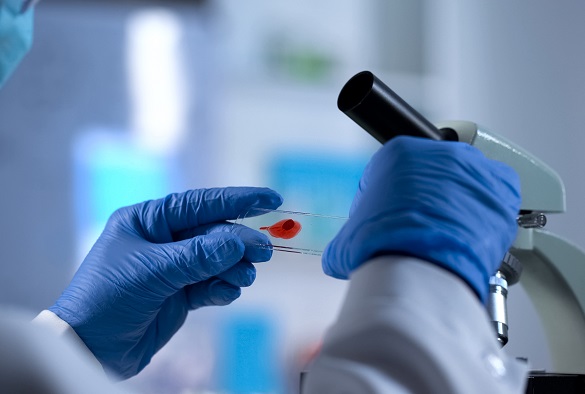Assembly Biosciences Nominates First Herpesvirus Development Candidate ABI-5366, a Long-Acting HSV-2 Helicase Inhibitor Targeting High-Recurrence Genital Herpes

Assembly Biosciences, Inc., a clinical-stage biotechnology company developing innovative antiviral therapeutics targeting serious viral diseases, today announced the selection of development candidate ABI-5366 (5366) to progress to IND-enabling studies for its long-acting herpes simplex virus type 2 (HSV-2) helicase inhibitor program. 5366 is the first development candidate from Assembly Bio’s discovery pipeline nominated for advancement to clinical development since the company announced its expanded research focus outside of hepatitis B last year.
“We’re excited to bring forward this novel development candidate from our HSV-2 program targeting high-recurrence genital herpes, a serious chronic viral disease with profound physical and psychological impacts on patients. There has not been a new medicine approved for patients suffering from high-recurrence genital herpes in decades and current therapies are only partially effective in preventing frequent outbreaks,” said William Delaney, PhD, chief scientific officer of Assembly Bio.
Assembly Bio’s HSV-2 program targets the viral helicase-primase, an essential viral enzyme complex and a clinically validated target. Helicase inhibition has demonstrated greater reductions in HSV-2 shedding, lesions and pain compared to approved suppressive nucleoside analog regimens in previous clinical studies. 5366, a small molecule helicase inhibitor with nanomolar potency in vitro, is designed for long-acting administration and has shown favorable pharmacokinetics (PK) for a long-acting therapeutic, including the key property of exceptionally low clearance, in preclinical studies. 5366’s preclinical profile shows the potential for at least monthly dosing, and Assembly Bio will continue to evaluate longer dosing intervals as development and formulation progress.
“Assembly Bio’s differentiated long-acting approach for HSV-2 offers the potential to maintain optimal drug plasma concentrations over long periods of time. We anticipate this drug profile, supported by 5366’s remarkably low clearance, will enhance both adherence and antiviral activity, leading to better outcomes for patients compared to current suppressive regimens that require daily dosing,” continued Dr. Delaney. “We are excited to continue advancing this promising candidate quickly toward the clinic and sharing more data on 5366 at scientific conferences in 2023.”
About High-Recurrence Genital Herpes
High-recurrence genital herpes associated with HSV-2 infection is characterized by frequent recurrences of lesions (six or more per year) and is estimated to affect up to 40% of HSV-2 genital herpes patients following their first outbreak. Approved suppressive therapy regimens consist of oral daily dosing of nucleoside analogs, a class first approved for genital herpes almost three decades ago, with no new drug approvals in the last 20 years. These suppressive regimens have been shown to reduce the recurrence of genital herpes among patients with high HSV-2 recurrence, but eliminate recurrences for only a minority of these patients.
About Assembly Biosciences
Assembly Biosciences is a clinical-stage biotechnology company dedicated to the development of innovative small molecule antiviral therapeutics with the potential to change the path of serious viral diseases and improve the lives of patients worldwide. The company’s hepatitis B virus (HBV) pipeline includes two potent, next-generation HBV core inhibitors in clinical development, which are designed to disrupt the virus’ replication cycle at several key points with the aim of achieving finite treatment and functional cures. Assembly Bio’s HBV and hepatitis delta virus (HDV) pipeline also includes two complementary approaches, a viral entry inhibitor and an oral, liver-focused, interferon-alpha receptor agonist, with potential application for both HBV and as chronic suppressive therapy for HDV, which is associated with significantly increased disease burden for HBV/HDV patients. The herpesvirus pipeline addresses two serious consequences associated with herpesvirus infections, high-recurrence genital herpes and transplant-associated herpesviruses. Led by an accomplished team of leaders in virologic drug development, Assembly Bio is committed to improving outcomes for patients struggling with the serious, chronic impacts of HBV, HDV and herpesvirus infections. For more information, visit assemblybio.com.
Read the original press release here
For more news from the world of long-acting therapeutics, sign up to the CELT mailing list for regular updates.